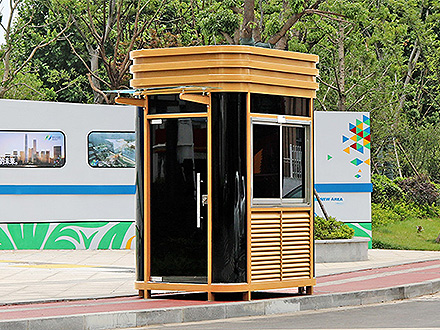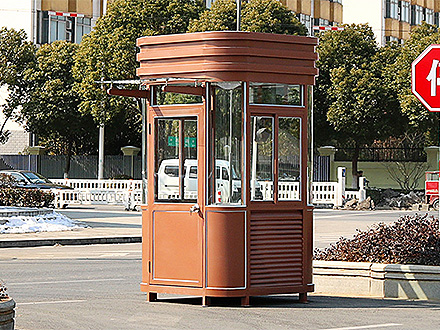I was fortunate to witness the birth of the world wide web up close. Initially, there were only pages of text connected by hyperlinks, but no people. So I formed one of the first internet start-ups, Ubique, with the mission of adding people to the web by developing social networking software which offered instant messaging, chat rooms and collaborative browsing. 我很幸运地近距离亲眼了万维网(world wide web)的问世。当初,网上只有一些由超链接连接起来在一起的文本页面,并没有人。
所以,我创办了最先的互联网创业型企业之一Ubique,期望研发出有获取即时通讯、聊天室和协同网页功能的社交网络软件,把人终端到网络中去。Since then, internet civilisation has mushroomed. According to a report published last year by the International Telecommunications Union, there are now 3.2bn internet users worldwide. But what kind of civilisation has it become? Imagine that 300m Twitter users wanted to change its rules of conduct, or that a billion Facebook users wanted to change its management. Is this possible or even thinkable? 自那以来,互联网文明已很快发展一起。根据国际电信联盟(ITU)去年公布的一份报告,当前全球互联网用户超过32亿人。
但互联网文明已变为了何种文明?想象一下,假如3亿推特(Twitter)用户想转变推特的不道德守则,或者10亿Facebook用户想转变Facebook的管理方式,这是有可能、或者退一步说,可以想象的吗? In 20 years, the internet has matured and has reached its equivalent of the Middle Ages. It has large feudal communities, with rulers who control everything and billions of serfs without civil rights. History tells us that the medieval era was followed by the Enlightenment. That great thinker of Enlightenment liberalism, John Stuart Mill, declared that there are three basic freedoms: freedom of thought and speech; freedom of “tastes and pursuits”; and the freedom to unite with others. The first two kinds of freedom are provided by the internet in abundance, at least in free countries. 20年间,互联网就已成熟期,转入了相等于中世纪的阶段。互联网上有无数大型封建制度社区,社区“统治者”掌控着一切,还掌控着数十亿没公民权的农奴。历史告诉他我们,中世纪之后是启蒙运动时代。
最出色的自由主义启蒙运动思想家约翰斯图尔特密尔(John Stuart Mill)声称,世界上不存在三种基本权利:思想与言论的权利;“趣味和志趣”的权利;以及与他人牵头的权利。互联网获取了大量的前两种权利,起码在权利国家是这样。
But today’s internet technology does not support freedom of assembly, and consequently does not support democracy. For how can we practice democracy if people cannot assemble to discuss, take collective action or form political parties? The reason is that the internet currently is a masquerade. We can easily form a group on Google or Facebook, but we cannot know for sure who its members are. Online, people are sometimes not who they say they are. 但是,如今的互联网技术不反对集会自由,因而也不反对民主。因为,如果无法集会展开辩论、采行完全一致行动或重新组建政党,我们如何能贯彻民主呢?原因在于,目前互联网是一个假面舞会。
我们可以只能在谷歌(Google)或Facebook上重新组建一个团体,但我们不确认团队成员究竟是谁。在网上,人们的实际身份有时跟他们声称的不完全一致。Fortunately, help is on the way. The United Nations and the World Bank are committed to providing digital IDs to every person on the planet by 2030. 幸运地的是,救助将要来临。
联合国(UN)和世界银行(World Bank)致力于到2030年为地球上所有人获取数字身份(ID)。Digital IDs are smart cards that use public key cryptography, contain biometric information and allow easy proof of identity. They are already being used in many countries, but widespread use of them on the internet will require standardisation and seamless smartphone integration, which are yet to come. 数字ID是智能卡,该卡用于公钥密码,包括生物特征信息,可以精彩地证明身份。
数字ID已开始在许多国家用于,但要将其普遍地应用于到互联网上,将必须展开标准化和无缝的智能手机融合——这一点仍未构建。In the meantime, we need to ask what kind of democracy could be realised on the internet. A new kind of online democracy is already emerging, with software such as Liquid Feedback or Adhocracy, which power “proposition development” and decision making. Known as “liquid” or “delegative democracy”, this is a hybrid of existing forms of direct and representative democracy. 另一方面,我们必须问:在互联网上有可能构建何种民主?随着Liquid Feedback或Adhocracy等反对“议案制订”和决策功能的软件的问世,一种新型网上民主已开始经常出现。这种民主被称作“流动式”或“代表式”民主,是现有的必要民主和代议制民主的混合体。
It is like direct democracy, in that every vote is decided by the entire membership, directly or via delegation. It resembles representative democracy in that members normally trust delegates to vote on their behalf. But delegates must constantly earn the trust of the other members. 它有些像必要民主,每次议会选举都由全体成员投票决定,必要或者通过代表投票。它跟代议制民主相近的是,成员们一般来说委托代表替他们投票。但代表们必需大大地谋求其他成员的信任。Another key question concerns which voting system to use. Systems that allow voters to rank alternatives are generally considered superior. Both delegative democracy and ranked voting require complex software and algorithms, and so previously were not practical. But they are uniquely suited to the internet. 另一个关键的问题关系到用于何种投票表决制度。
容许选民为候选者排序的制度一般来说被指出是良好的制度。代表式民主和优先选择投票制都拒绝简单的软件和算法,所以之前并不不切实际。
但这两者都尤其合适用作互联网。Although today there are only a handful of efforts at internet democracy, I believe that smartphone-ready digital IDs will eventually usher in a “Cambrian explosion” of democratic forms. The resulting internet democracy will be far superior to its offline counterpart. Imagine a Facebook-like community that encompasses all of humanity. We may call it “united humanity”, as it will unite people, not nations. It will win hearts and minds by offering people the prospect of genuine participation, both locally and globally, in the democratic process. 尽管如今世界上在互联网民主方面的尝试屈指可数,但我指出,智能手机限于的数字ID将最后带给各种民主形式的“寒武纪大爆发”(Cambrian explosion)。
随之而来的互联网民主将比线下民主良好得多。想象一个包括了所有人类的Facebook社区。
我们也许不会称作“牵头人”(仿“联合国”——译者录),因为它将把人类、而不是国家牵头到一起。它将向人们获取在地区和全球范围内确实参予民主进程的可能性,从而夺得人们全心全意的拥戴。
本文关键词:od·体育(中国)官方网站,OD·体育网页版登录入口,od体育官网进入,od体育平台入口,od体育手机网页版登录
本文来源:od·体育(中国)官方网站-www.lovestore8.com






